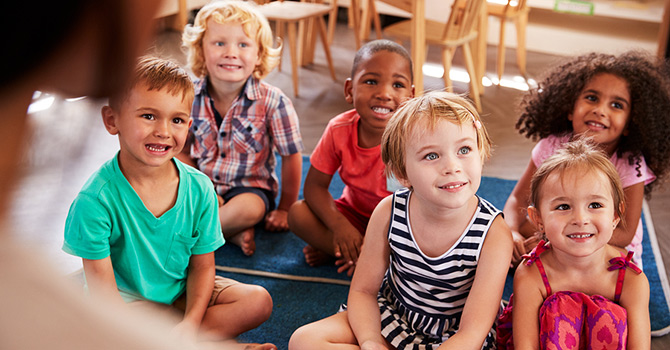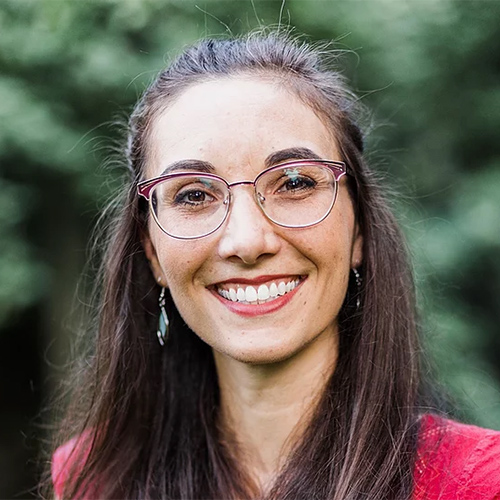During Holy Week, I gather up our flock of children at the front of the sanctuary. “I have a surprise to tell you,” I whisper into the mic, excitement in my eyes. I hand out an envelope to each child. Inside is a piece of paper that says, “He is risen!” On the outside I’ve written the words “Don’t open until Easter.”
I then whisper the surprise in each child’s ear -- “He is risen.” It’s news we need to remember, because something sad is going to happen, I tell them. Jesus will be hung on a cross. He’ll be lonely. He’ll die. But we know the surprise -- in three days he will come back to life.
I’ve shared this surprise in different ways -- balloons with notes inside, the word “Alleluia” written on a palm in magic marker. But one thing stays the same. The good news is a “surprise,” never a “secret.”
Each year, I take a few minutes to remind children of the difference. A secret is something we’re not supposed to tell. It’s something we are meant to keep inside, to ourselves. A surprise is something we’re meant to wait for the right moment to share, like a surprise party or a present we’ve been saving to give to a friend.
I tell children one more thing: Adults should never ask you to keep secrets. And if they do, you need to let a grown-up you trust know right away. An adult who cares about you will never ask you to keep a secret from your trusted grown-up.
Years ago, when I was charged with enforcement of our Safe Church Policy, a series of requirements and trainings that help protect vulnerable people at church from sexual, verbal and economic abuse, I learned the difference between secrets and surprises.
The trainer told us that secrets are often used to leverage power over children, because children have been trained to keep secrets. Often, sexual predators will begin with small, innocent secrets, gradually increasing the threat level, testing a child to see how much the child will hide from parents and friends.
Once I learned this, I began to confront the different ways we needed to embed awareness and vigilance in our church, in both word and deed. That became a habit I have continued to develop throughout my career as a pastor.
It’s important for religious leaders to remember that we have ample opportunities to model protecting the safety of vulnerable people to our congregations. Creating a safe space doesn’t end with a yearly training. To make a space truly safe, this awareness has to become a disposition of our ministry.
Safe Church training also taught me that sexual predators are smart. They look for soft targets. Churches, with our open-door policies, our emphasis on love and forgiveness, can represent open season for those looking to capitalize on our lack of attention.
This is why I include tips about keeping our sanctuary safe in our pre-church announcements. And when I give the “surprise” talk at Holy Week, I tell it to the children, but the whole church listens in. I want to make clear to anyone who would think to take advantage of our children that we are trained, aware and ready.
Equally important is the work we do among the children. We teach them that their bodies are good, that God made them, and that they get to decide who touches them and when. We teach them consent in other forms as well, telling them to listen when their peers stay “stop” or “go” in tag or play.
We create a sanctuary of trained and trusted grown-ups so that if something does go wrong, the children know that there are many people to whom they can turn, many people with whom they can share what is happening in their lives.
I would guess that some churches are anxious about introducing these explicit forms of anti-abuse training. After all, shouldn’t we leave this to parents? Anna Groff, the executive director of the child abuse prevention network Dove’s Nest, reminds us that churches are places of high trust and therefore also places of high risk. Parents offer us, church leaders, their trust to care for their children in our worship and programming. It is our responsibility to honor that trust with informed, attentive teaching and care.
Church is the place where we come not just for transformation of our minds but for participation in a community that cares about our whole selves. God comes in a human body, a whole body, showing us that all of life is in God’s care -- our bodies, our souls, our sexuality.
In the season of Easter, we remember a God who came to us fully human in the person of Jesus Christ, a God who was willing to get into the messiness of bodies. As we follow after this Jesus, the one who is risen from the dead, we are called to communities that nurture bodies and souls, lives of wholeness, lives of shalom. Creating a new culture at church, a community of safety and peace, is our Christian call.








